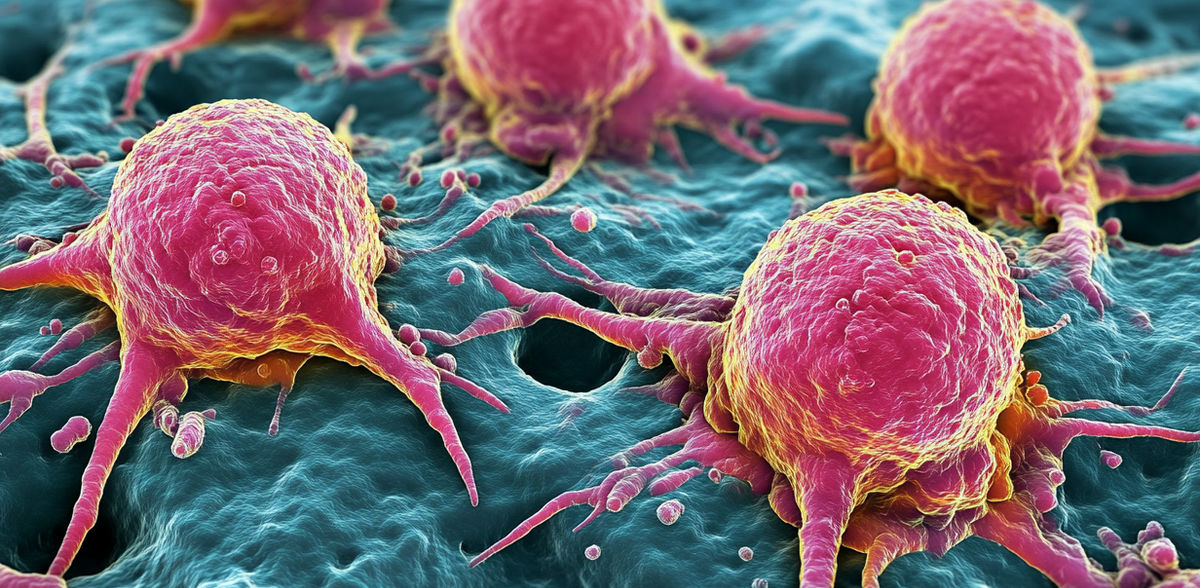Pulmonary carcinoids:Mortal or immortal cancer cells?
Key factors for different trajectories
Advertisement
pulmonary carcinoids are rare tumors of the lung with extremely varied clinical courses. In many patients, they behave like benign tumors; surgical removal of the tumor leads to a complete cure in these patients. In some patients, however, the tumor grows aggressively and metastasizes, with poor chances of recovery.
The biological causes of these different forms of progression are still unclear. In a joint study, scientists from Experimental Pediatric Oncology at the University Hospital of Cologne and Translational Genomics at the University of Cologne have now discovered that the course of the disease in pulmonary carcinoids is linked to activation of the gene TERT (telomerase reverse transcriptase).
TERT codes for the enzyme telomerase, which contributes significantly to the stabilization of chromosome ends (telomeres). In most healthy body cells, this enzyme is not active, which limits the cells' ability to divide. In stem cells and cancer cells, however, the activation of telomerase leads to an unlimited ability to divide, whereby these cells become immortal and can grow indefinitely.
In the current study, the Cologne scientists found that pulmonary carcinoids with an aggressive clinical course are characterized by activation of the TERT gene, while telomerase activity is absent in carcinoids with a benign course. They had previously made a similar observation in a childhood tumour, neuroblastoma: in this cancer, too, an unfavourable course of the disease was dependent on the presence of telomere stabilization mechanisms.
Prof. Dr. Matthias Fischer, Head of Experimental Pediatric Oncology in the Department of Pediatrics and Adolescent Medicine at the University Hospital of Cologne and one of the two last authors of the study, on the significance for the treatment of patients with pulmonary carcinoids: "The findings of this study will allow a more accurate prediction of the course of the disease in the future and thus also a planning of the intensity of therapy adapted to individual needs." Prof. Dr. Roman Thomas, Director of the Department of Translational Genomics at the University of Cologne, adds: "The results also make it clear that the activation of telomere stabilization mechanisms is a core feature of malignant cancers that distinguishes them from benign tumours. The development of targeted therapeutic strategies against telomere stabilization mechanisms could therefore improve the treatment of many cancers in the future.
Note: This article has been translated using a computer system without human intervention. LUMITOS offers these automatic translations to present a wider range of current news. Since this article has been translated with automatic translation, it is possible that it contains errors in vocabulary, syntax or grammar. The original article in German can be found here.
Original publication
Lisa Werr, Christoph Bartenhagen, Carolina Rosswog, Maria Cartolano, Catherine Voegele, Alexandra Sexton-Oates, Alex Di Genova, Angela Ernst, Yvonne Kahlert, Nadine Hemstedt, Stefanie Höppner, Audrey Mansuet Lupo, et al.; "TERT Expression and Clinical Outcome in Pulmonary Carcinoids"; Journal of Clinical Oncology, 2024-9-30
























































